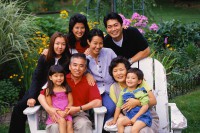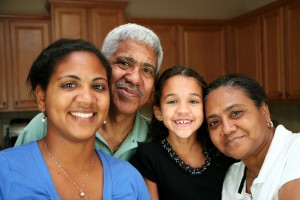
If you’ve received a diagnosis of cancer, your family will serve as the anchors of your support system. But should that include the younger members? Here are some helpful suggestions for sharing the news with grandchildren.
What Do I Tell Them?
• Before any decisions are made, consult with your children and their spouses. They have the ultimate responsibility of raising their kids, so they should have the ultimate approval over what they are told along with when and where.
• Formulate the content of your discussion based on the child’s point of view. Depending on age, he or she may not even know what cancer is, let alone have any frame of reference for it.
• Children are naturally self-centered, but not in a bad way. They simply don’t have the life experience to think outside of themselves. While they will be concerned for you, be prepared to assure them that their life will go on as normal.
Do I HAVE to Tell Them?
Children are more intuitive than most people think. If they sense that something’s wrong, lack of knowledge will frighten them more than the truth. It’s also better that they learn from you rather than from an outside source which may be misinformed.
Immunotherapy for Cancer: Giving Hope to Patients and Families
Former President Jimmy Carter is one of a growing number of patients who have successfully received immunotherapy for cancer treatments. Contact us today for testimonials from patients at our Issels® clinic who have benefited from personalized treatment protocols for cancer in all forms, including melanoma, leukemia, and breast cancer.



